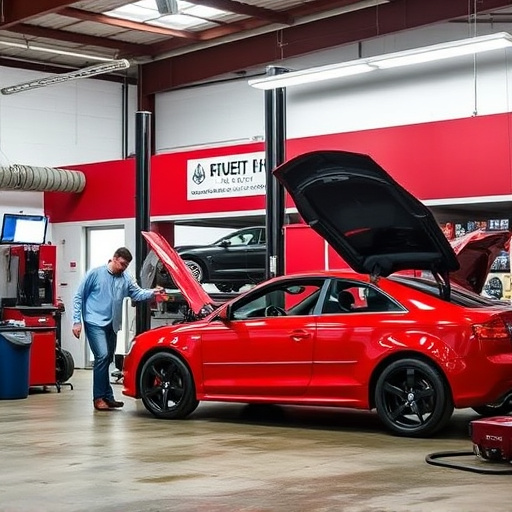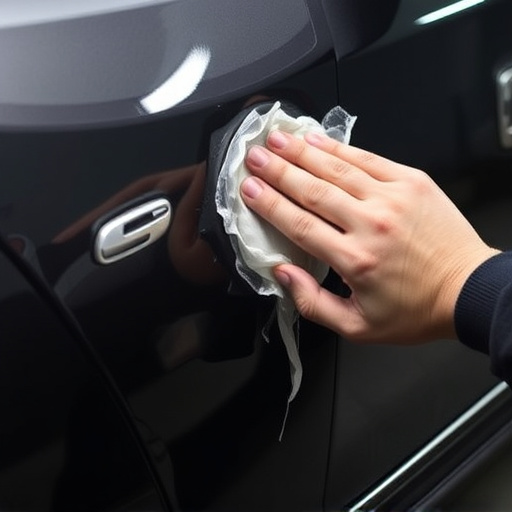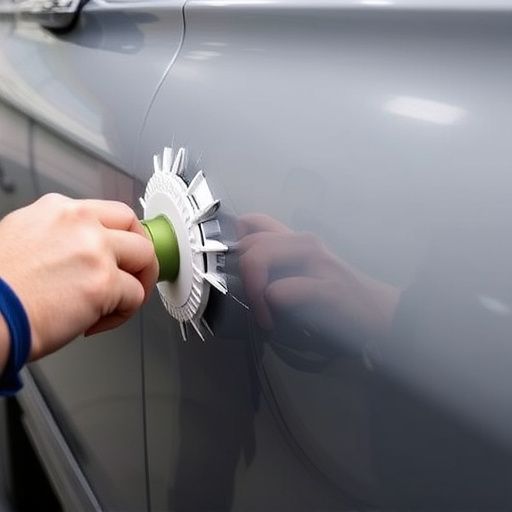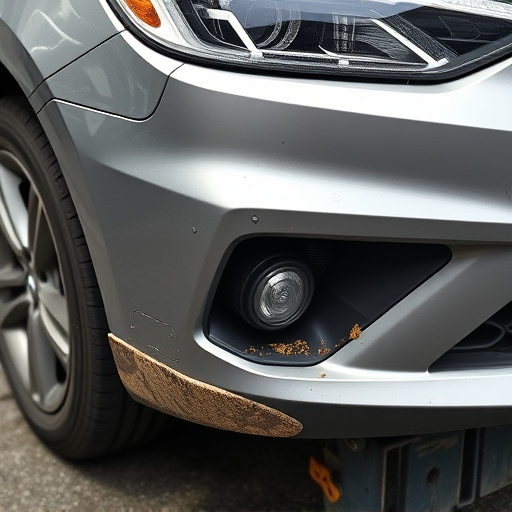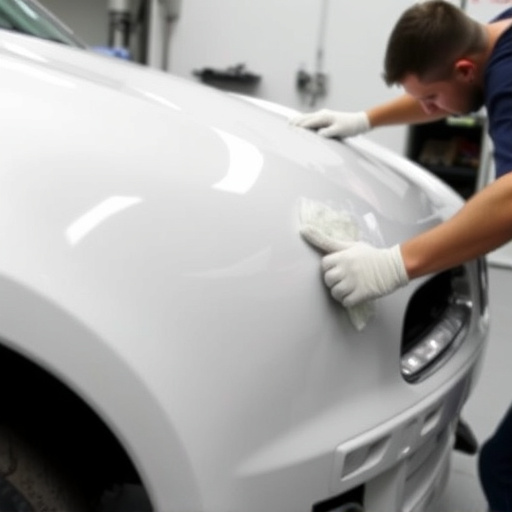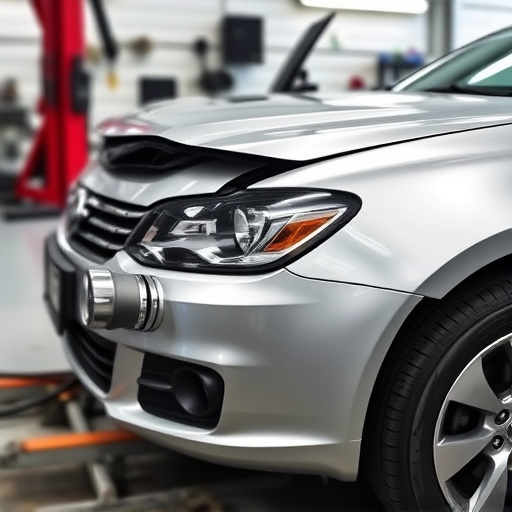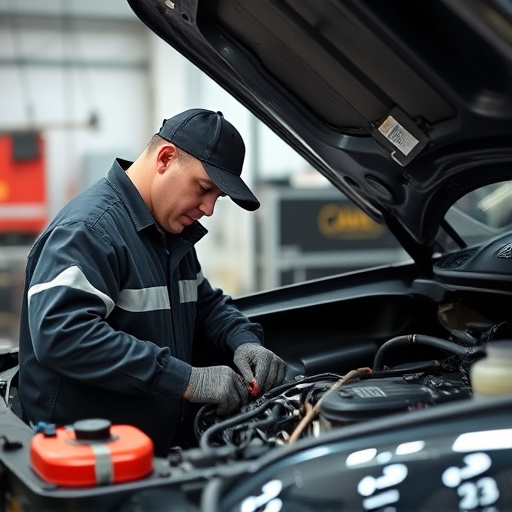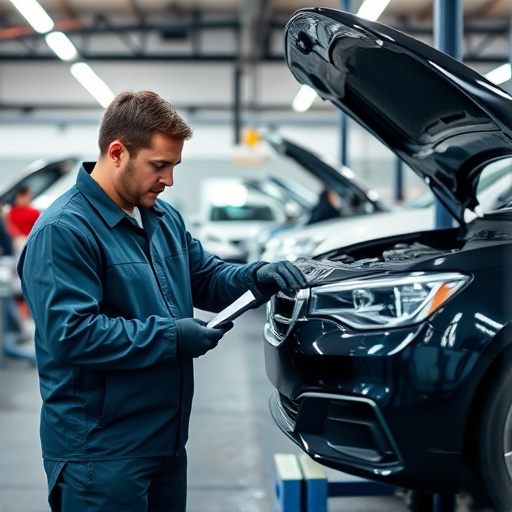In a competitive market, customer satisfaction drives manufacturers to set high standards for auto glass repair and dent removal. Technicians must complete manufacturer-approved repair training, featuring in-depth vehicle studies, practical sessions, and expert supervision, to ensure precise, consistent, and safe repairs. This rigorous preparation includes specialized tools, online resources, and virtual reality simulations, enabling technicians to build confidence in complex procedures while adhering to industry benchmarks for structural integrity and optimal vehicle performance.
In today’s digital era, accurate and certified repairs are paramount to ensure device longevity and consumer satisfaction. Technicians must undergo rigorous training to achieve manufacturer-approved repair accuracy. This article delves into the critical aspects of technician training, covering the importance of specialized programs, the preparation process, and essential tools needed to excel in certified repairs. By understanding these elements, technicians can enhance their skills and deliver reliable service.
- Understanding the Importance of Manufacturer-Approved Repair Training
- The Process: Preparing for and Completing Technical Training Programs
- Tools and Resources: Equipping Technicians for Success in Certified Repairs
Understanding the Importance of Manufacturer-Approved Repair Training

In today’s competitive market, where customer satisfaction is paramount, manufacturers are setting the bar high for repair accuracy and quality. Technicians who specialize in auto glass repair, dent removal, and other vehicle services must undergo manufacturer-approved repair training to meet these standards. This specialized training isn’t just a requirement; it’s a crucial step towards ensuring precise and consistent repairs that maintain the integrity of the vehicle and keep customers safe.
Manufacturer-approved programs offer more than just technical skills. They foster an understanding of specific vehicle models, enabling technicians to navigate complex repair processes with confidence. By adhering to these training protocols, auto collision centers can deliver high-quality services, build trust with clients, and ultimately solidify their reputation in the industry.
The Process: Preparing for and Completing Technical Training Programs

Technical training programs are designed to equip technicians with the knowledge and skills required for manufacturer-approved repair accuracy. These programs often begin with an intensive study of vehicle components, systems, and their interactions. Technicians learn not just about the mechanics but also about the specific materials and processes used by car manufacturers in their production. This foundational understanding is crucial for accurately diagnosing issues and carrying out repairs that meet or exceed factory standards.
During practical sessions, trainees put their theoretical knowledge to the test. They engage in hands-on exercises focusing on tasks like auto detailing, vehicle body repair, and auto painting. These activities are supervised by experienced professionals who provide real-time feedback, ensuring each technician develops consistent and precise techniques. By completing these structured training programs, technicians gain the confidence needed to tackle a wide range of repairs with manufacturer-approved methods and materials.
Tools and Resources: Equipping Technicians for Success in Certified Repairs
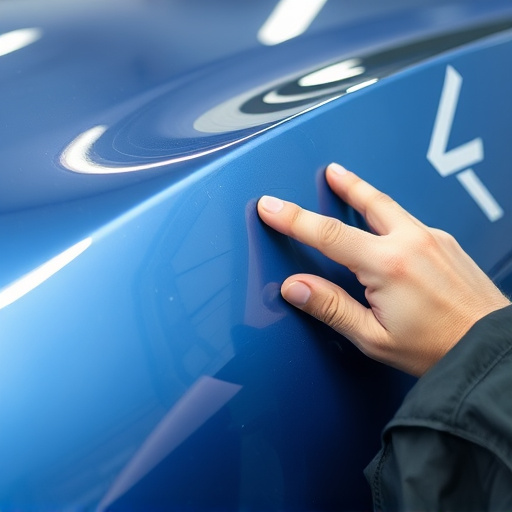
Technicians aiming for manufacturer-approved repair accuracy rely on a well-equipped toolkit and access to comprehensive resources. To excel in this field, they must be prepared with the right equipment that meets the specific standards set by automotive manufacturers. This includes specialized tools designed for precise measurements, assembly, and disassembly processes, ensuring every move is executed flawlessly during repairs. For instance, a complete set of torx screwdrivers, impact wrenches, and laser measuring devices can significantly enhance a technician’s efficiency in tasks like fender repair or car collision repair.
Additionally, online training platforms, digital manuals, and virtual reality simulations offer invaluable resources. These tools enable technicians to gain in-depth knowledge about vehicle systems, study intricate assembly procedures, and practice complex repairs without handling real vehicles. This preparation is especially beneficial when tackling intricate tasks like vehicle collision repair or fender repair, where manufacturer guidelines must be followed precisely to ensure structural integrity and the vehicle’s overall performance.
Technicians play a vital role in ensuring that devices function optimally, and their training is paramount to achieving accurate manufacturer-approved repairs. By understanding the importance of specialized training, going through rigorous preparation, and utilizing approved tools, technicians can deliver high-quality service. This not only enhances customer satisfaction but also guarantees the integrity of the products, fostering a reliable after-sales support system.
